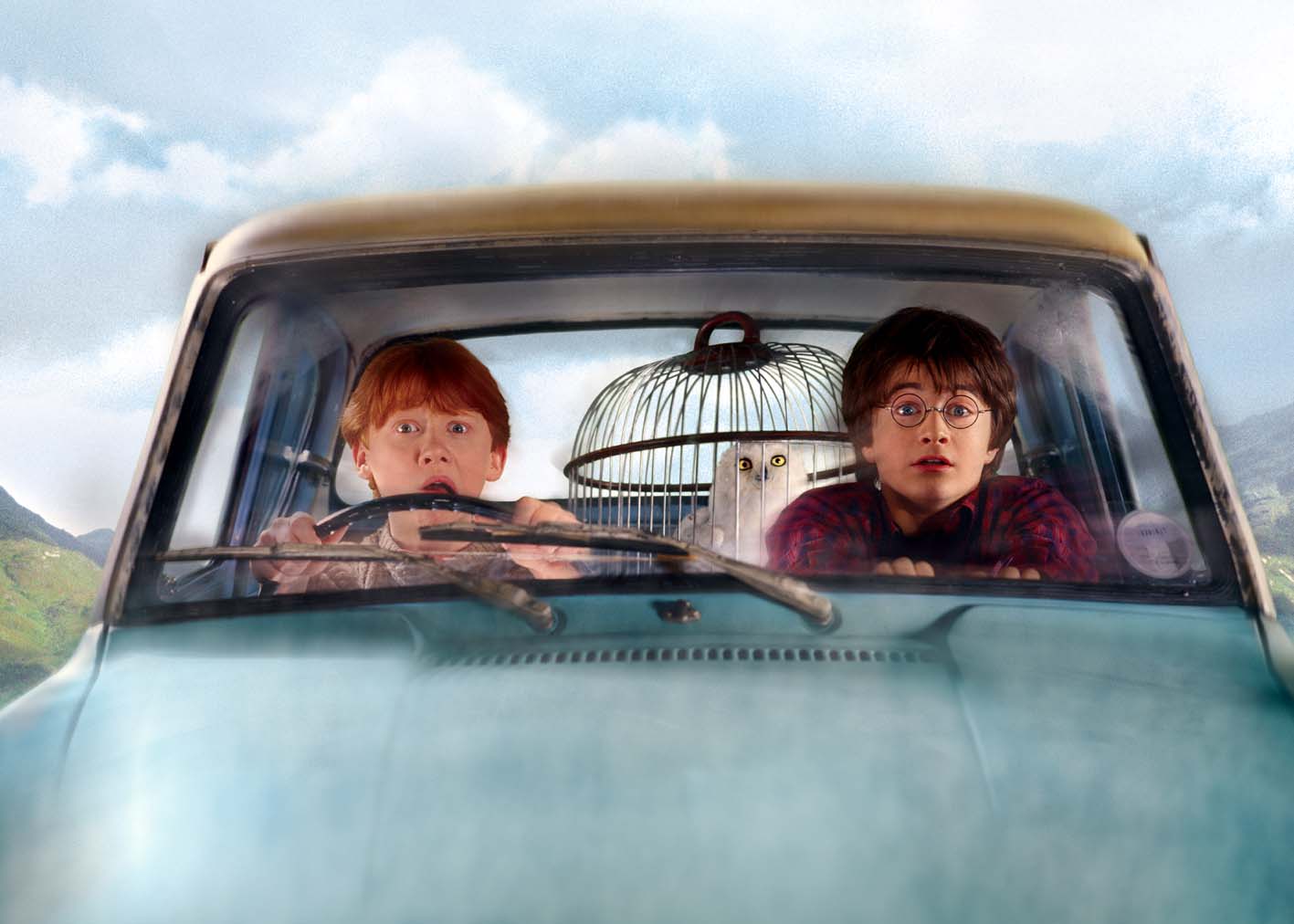

By the time the fourth novel was published, my family had settled into a routine: my father would buy the book and read it first, followed by my mother (who read excruciatingly slowly), and then me. After I devoured J.K. Rowling’s latest offering (usually within a day), it was my brother John’s turn, and so on and so forth. Needless to say, by the time my fourth or fifth sibling laid their hands on the book, it would invariably be falling apart.
I loved plunging myself into the world of Hogwarts. I longed to accompany Harry, Hermione and Ron on their adventures; I’d have given anything to attend potions classes with them, or join the Gryffindor quidditch team in the skies. I was never delusional enough to expect a letter from Hogwarts on my 11th birthday, but I did imagine what it might be like to walk the hallowed halls of that magical school. The antics of Fred and George thrilled me; I was by turns intrigued and repulsed by Snape, and I railed against Professor Umbridge and Rita Skeeter.
But even as a teen, I recognised the strengths of J.K. Rowling, namely her ability to build an endlessly entertaining and enthralling world, alongside her weaknesses—the inferior quality of the writing itself, the awkwardness of her dialogue, the stilted character development, the torpidity of her sentences, the dullness of her style.
Much has been made in recent years of J.K. Rowling’s politics; her opposition to Scottish Independence and Brexit, her support of the UK Labour party, and most prominently, her transphobic beliefs and unqualified support of hate-mongers like Kellie-Jay Keen and Matt Walsh.
The question of whether one can separate the artist from her art is a murky and complicated one. It is not one I wish to contemplate today. Rather, I am interested in interrogating the quality of Rowling’s writing itself—that penned under her own name as well as her pseudonym, "Robert Gailbraith".
Quite frankly, J.K. Rowling is not a very good writer.
Let’s begin with her penchant for retroactively shoehorning diversity into the HP canon. Dumbledore’s gay! His feud with Grindleward amounts to nothing more than a lover’s tiff! Werewolves are actually a metaphor for HIV/Aids! You didn’t realise Hermione is actually Black? Shame on you. This cynical retconning is both disingenuous and cowardly, revealing that Rowling considers diversity a mere afterthought — something to be shoved into the canon once it is socially acceptable to do so. There is of course nothing, for example, to suggest that Dumbledore is actually queer in the HP books themselves.
In keeping with this theme, Rowling’s novels are peppered with lazy, and quite frankly damaging, stereotypes. The only Irish character in the HP novels is a chaotic figure prone to blowing things up and lighting his eyebrows on fire. The goblins, with their grasping fingers, hooked noses, and love of money, bear an uncomfortable resemblance to anti-Semitic tropes. House-elves such as Dobby, a clear stand-in for enslaved African-American people, are eternally slavish and submissive, and in most instances (Kreacher excluded) seem to love their servitude. It’s all a bit icky. Non-white characters barely exist within the novels, and when they do appear, they are mere one-dimensional figures, cardboard-cutouts added for a little flavour and colour.
Her characters are stagnant, with little to no development over the course of seven novels. In The Philosopher’s Stone, Harry is spunky — a natural leader despite his ignorance of the wizarding world. Hermione is the annoying know-it-all, constantly poking her nose into other people’s business. Ron is the hapless comic relief, the foil to Harry. Seven books later and nothing has changed. Harry is still plucky and courageous, Hermione still a walking dictionary, and Ron still a bumbling, but loveable idiot. Neville Longbottom is perhaps the only character that truly grows over his time at Hogwarts.
There is no denying that J.K. Rowling has created an exciting and immersive world, full of magic and whimsy. She is gifted at pulling together myriad threads from a diverse array of folklore traditions, myths, and legends. But the prose itself is plodding and formulaic. Nicholas Lezard, writing for The Guardian, put it brilliantly: "This is the kind of prose that reasonably intelligent 9-year-olds consider pretty hot stuff, if they’re producing it themselves; for a highly-educated woman like Rowling to knock out the same kind of material is, shall we say, somewhat disappointing."
Rowling has a tendency to omit clauses, construct sentences poorly and confuse tense and point of view. She uses the passive voice far too much, and makes things needlessly complicated with constant repetition. At times her writing is so florid I wish I could take a scalpel and excise all the useless and unnecessary descriptors. And then there are all the exposition dumps where characters are pulled in to tell lengthy stories that miraculously tie together all the clues and red herrings Rowling has laid for us. Isn’t the first rule of writing "show, don’t tell"?
Then there’s the over-reliance on adverbs. As Stephen King once said, "Ms Rowling seems to have never met [an adverb] she didn’t like". Dumbledore speaks calmly. Harry yells angrily. Hermione stomps around grumpily. Rowling’s penchant for adverbs is at best lazy and at worst off-putting. If her dialogue was nuanced and well-written, she wouldn’t have to constantly tack on adverbs after every utterance. (I type this, testily.)
Of course, every writer has her flaws. Sally Rooney, for example, seems incapable of tackling anything more substantial than half-whispered post-coital conversations and thwarted teenage relationships. Victor Hugo has a tendency to soliloquise ad infinitum about matters that do not bear upon his characters or plot in any notable manner. Charles Dickens, the undisputed king of outrageously colourful characters, has convoluted and patently ridiculous plots.
But with all these authors, their strengths far outweigh their failures.
Sadly, I cannot say the same for J.K. Rowling.
- Jean Balchin, a former English student at the University of Otago, is studying at Oxford University after being awarded a Rhodes Scholarship.












